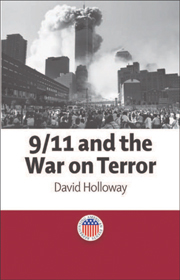Book contents
- Frontmatter
- Contents
- List of Illustrations
- Series Editors' Preface
- Acknowledgements
- Introduction
- 1 History
- 2 Politics
- 3 Mass Media
- 4 Cinema
- 5 Literature
- 6 Photography and Visual Art
- Conclusion
- Appendix A Timeline
- Appendix B Synoptic biographies
- Annotated bibliography of further reading and texts cited
- Index
4 - Cinema
Published online by Cambridge University Press: 05 August 2013
- Frontmatter
- Contents
- List of Illustrations
- Series Editors' Preface
- Acknowledgements
- Introduction
- 1 History
- 2 Politics
- 3 Mass Media
- 4 Cinema
- 5 Literature
- 6 Photography and Visual Art
- Conclusion
- Appendix A Timeline
- Appendix B Synoptic biographies
- Annotated bibliography of further reading and texts cited
- Index
Summary
‘Allegory Lite’, and the movie Hollywood Refused to Make
One of several remakes of classic Cold War Hollywood films after 9/11 The Manchurian Candidate (2004) presented American audiences with what it called ‘regime change in our country’. Jonathan Demme's remake of one of the most famous political allegories in Hollywood history replaced the original's fable about communist subversion and McCarthyism in the 1950s with a narrative in which the ‘enemy within’ became corporate capitalism, whose brainwashed stooge, ex-Gulf War serviceman Raymond Shaw, secures a vice presidential nomination on the back of a military record falsified by his controllers, a sinister transnational corporation called Manchurian Global.
In a notable deviation from the original Cold War version of The Manchurian Candidate (1962), where the aim of the conspiracy was to secure communist control over American political institutions, in the remake the hijacking of the republic was also an explicitly economic adventure. Indeed, one of the film's more challenging aims seemed to be to rewrite American history as imperialist history – an end to which the film began working, poetically at least, as early as its opening sequence, where American soldiers playing cards during the first Gulf War brandished fistfuls of dollars in a tank, introduced by a reworking of Creedence Clearwater Revival's famous song about the Vietnam War as class war, ‘Fortunate Son’ (1969). The Manchurian Candidate used its opening sequence to recast the recent American past as a history of corporate expansionism enforced by military and political power.
- Type
- Chapter
- Information
- 9/11 and the War on Terror , pp. 81 - 106Publisher: Edinburgh University PressPrint publication year: 2008



